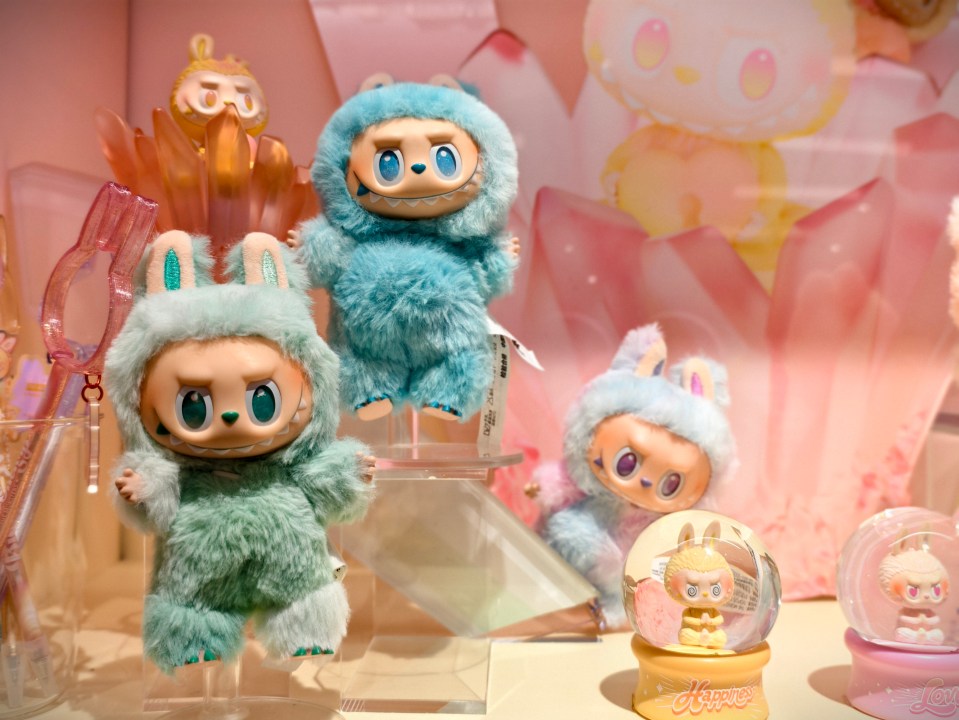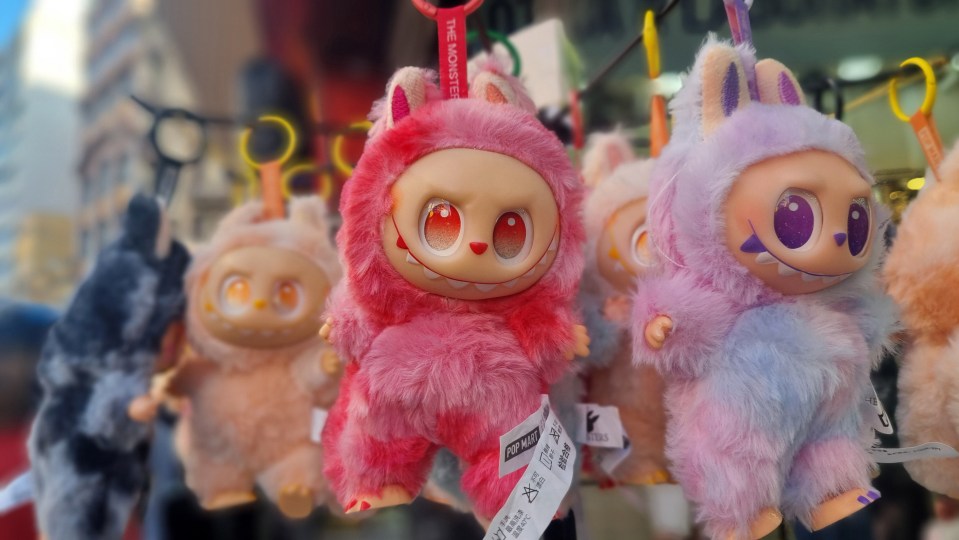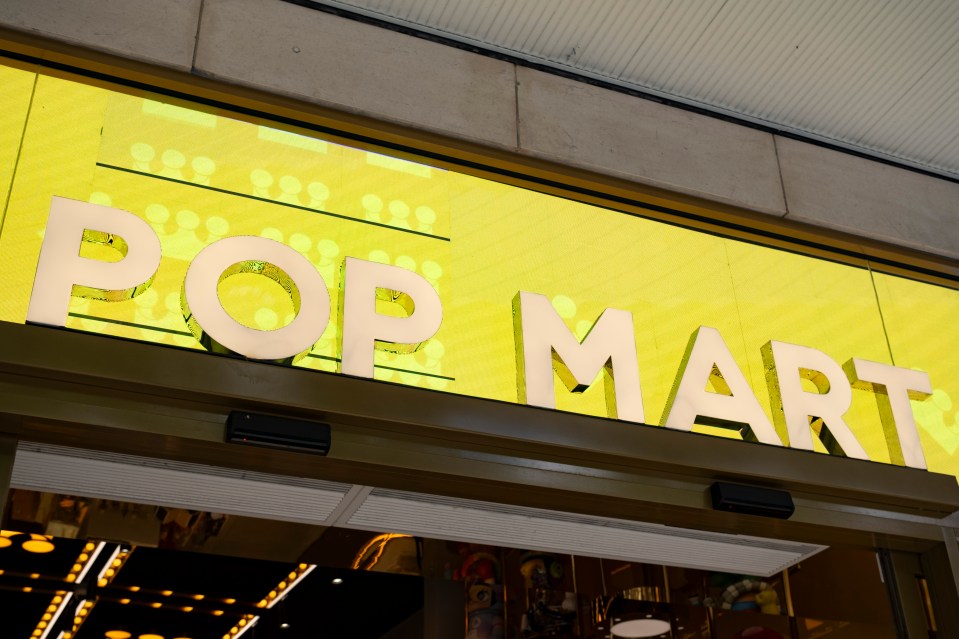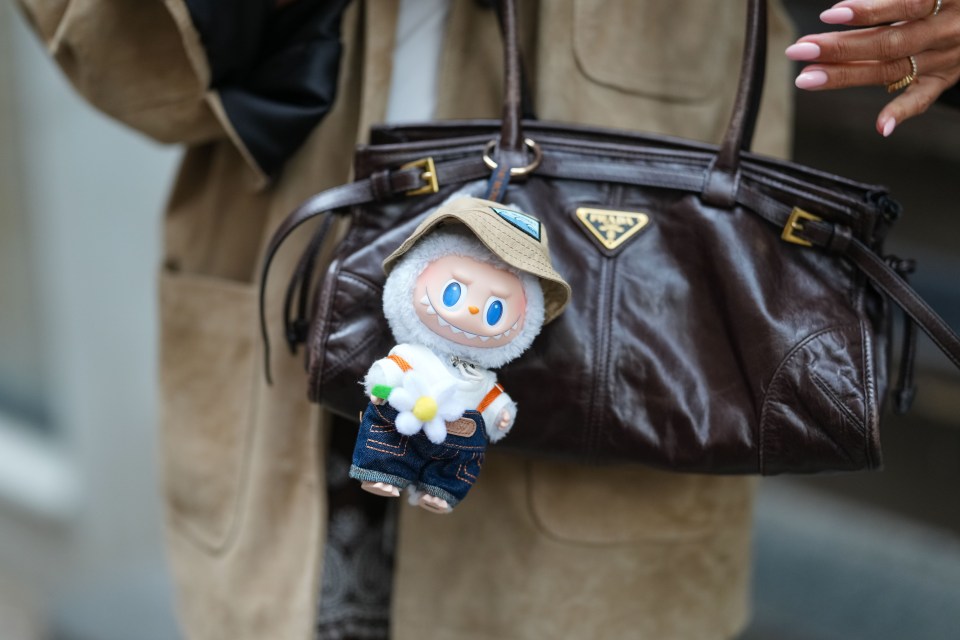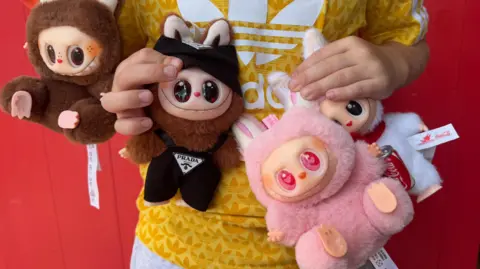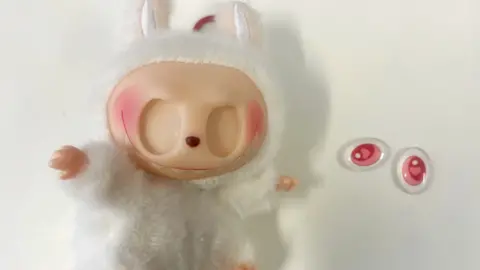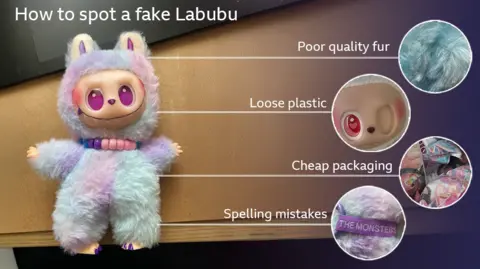UK high street retailer starts selling viral Labubu dolls – but big change is infuriating customers
WILKO is now selling official Labubu dolls – but shoppers have been infuriated by the hefty price tags.
The dolls, which originate from Hong Kong, are retailing for £50 at the high street chain.
Customers took to social media to express their anger at the prices of the fang-toothed, fuzzy dolls.
One said on Instagram: ” The prices are horrendous.”
Another added: “Get stuffed.”
While a third said: “Disgusting prices.”
The dolls are currently available both in Wilko stores and online.
Wilko returned to UK high streets last year after announcing it would be closing all of its shops back in October 2023.
The Labubu doll was first introduced in 2015 but has soared in popularity through celebrity endorsements and its ‘ugly-cute’ design.
They are particularly popular across Southern Asia, with K-Pop performer, Lisa, sharing the fluffy doll on her Instagram story which skyrocketed the craze around the toy.
The hashtag Labubu has appeared more than a million times on TikTok.
Where else can you purchase Labubu’s
The figures are available on the Pop Mart platform but consumers have to be incredibly savvy to get them as they are often sold out.
However, if you live near London, Pop Mart’s new flagship shop has just opened on Oxford Street, which often has exclusive drops of the dolls.
These retail for £32, far less than Wilko.
The doll is also available on Amazon for much cheaper prices, although highly sought after editions can sell for upwards of three figures.
You might have more luck looking on second hand retailers such as Vinted or Depop, who often sell high quality items for half the price.
If you don’t want to purchase the item, you can even rent the dolls.
You can borrow the charms for around £4 a day on platforms such as By Rotation.
Growing number of fakes
Not only have the dolls risen to extremely high prices, there is huge number of counterfeits arriving in the UK.
Out of the 259,000 fake toys that arrived in the UK this year, 90% have been Labubu dolls.
Experts value this haul at nearly £3.3million.
Many of these toys fail safety checks for banned chemicals and pose significant choking hazards.
However, despite these safety concerns, IPO research said that 92% of customer we’re aware they we’re buying counterfeit products, but that the price was more important.
How to avoid buying fake toys
Many customers are not aware that they are buying fakes, but the IPO research found that 58% would think twice before purchasing if they knew the safety risks.
Customers should stick to there trusted retailers and official branded websites to avoid purchasing fakes.
Additionally, prices that look ‘to good to be true’ are likely to imply a fake item.
You should also look thoroughly through the reviews before purchasing, look beyond the first few.
When the toy arrives you should look for a UKCA safety mark and a UK or EU contact on the pacakaging.
The packaging should also look of high standard and not have any immediate signs of wear.
For Labubu’s particular, collectors suggest looking for signs such as brightness of the packaging, pop mart stamp on their foot, number of teeth of the dolls should have (nine) and the presence of the a QR code, to ensure the validity of the doll.
What to watch out for when buying toys online
HERE are the British Toy and Hobby Association’s top tips for buying toys online:
- Shop early. Don’t leave purchases to the last minute rush which might leave you fewer options of where to buy from.
- Check out third-party sellers. Look for sellers you recognise and trust. Be cautious of retailers you don’t know and do your research checking reviews and where they’re based.
- Go for branded toys. Try and choose a branded toy as then you can compare it to the manufacturer’s own website to check it’s legit.
- Be careful of going for the cheapest price. If something looks too good to be true, it probably is.
- Check if there are any age restrictions. Make sure you give suitable toys to children based on their age.
- Check reviews carefully. Some reviews are fake so look carefully at the comments.
- Stay with children at first. When your child opens a toy for the first time, stay with them and check for faults, detachable small parts, access to stuffing and loose or accessible batteries or magnets.
